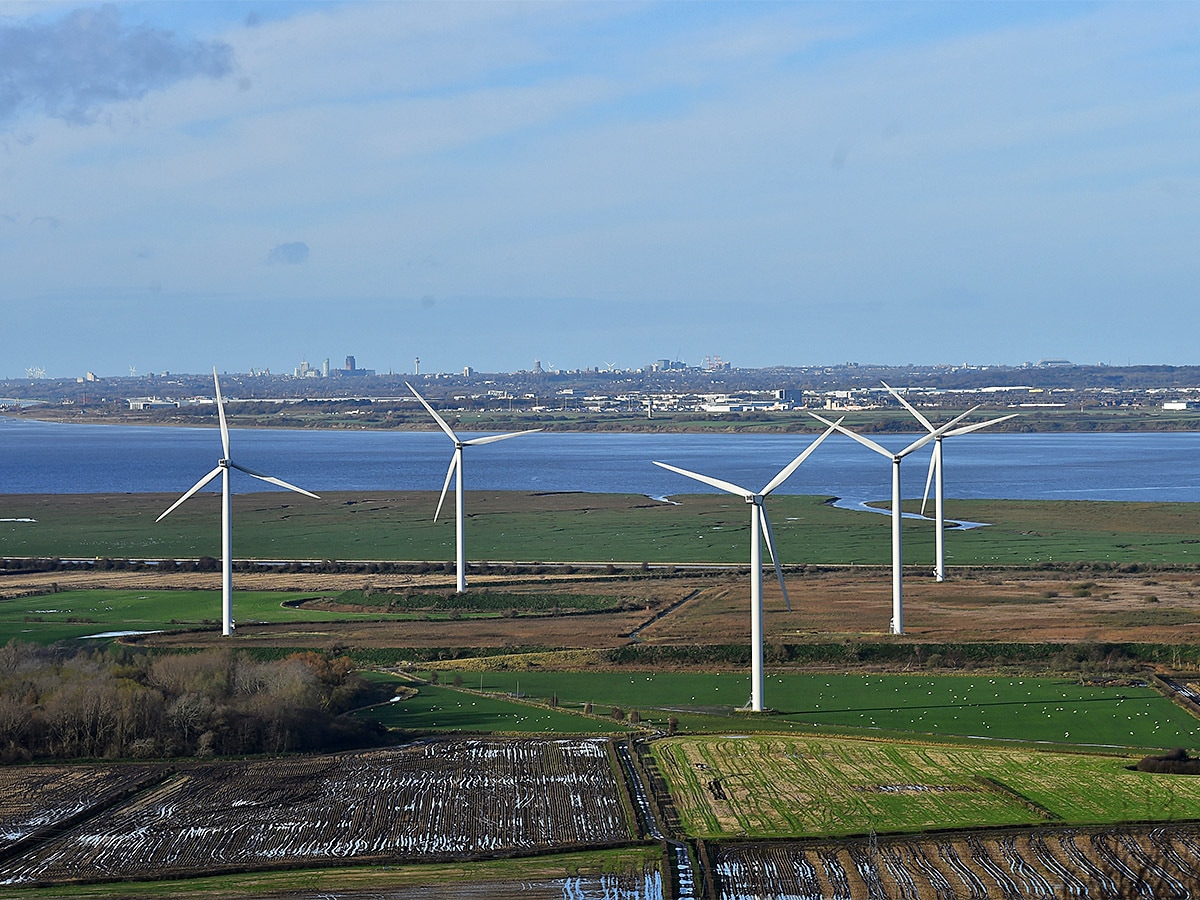The First Trust Global Wind Energy ETF has fallen this year as wind energy suffers from inflation and a slow permit process. The fund’s largest positions have posted slumping profits as the outlook for the industry weakens. While pledged investments into clean energy may stimulate future growth, analysts remain neutral over the fund’s top holdings.
- Increases in inflation have weighed on wind turbine manufacturers.
- The First Trust Global Wind Energy ETF’s top holdings have seen profits fall amid high impairment charges as the outlook for wind power weakens.
- Investment from the US inflation reduction act may stimulate the industry.
The price of the First Trust Global Wind Energy ETF [FAN] is down 3.1% over the past month and flat year-to-date(through 10 March) as investor sentiment in wind energy slows. The industry has struggled to capture the strong growth seen by other clean energy players.
The rising cost of materials is one of the main factors that has impacted the industry’s growth in the last year, with many manufacturers heavily dependent on the price of raw materials such as steel for expansion.
Alongside this, Danish industry leaders Vestas [VWS.CO] and Ørsted [ORSTED.CO] have been frustrated by slow wind farm approval processes, which have also contributed to slower growth in the last few years. Iberdrola-owned [IBE.MC] Scottish Power CEO Keith Anderson also noted that while it only takes two years to build a wind farm, the planning process is “fundamentally flawed” and often takes up to 10 years.
Despite the challenges facing the industry and the First Trust Global Wind Energy ETF, there remains hope for long-term prospects. With pressure growing on European policymakers to speed up the long permit process and recent US legislation stimulating investment in wind power, the fund could rebound over a long time horizon.
Wind farms cite inflation impact
The fund’s largest holding, Vestas Wind Systems, designs, manufactures, installs and services wind turbines. The company makes up 9.51% of the total fund value as of 10 March. Just as with the overall fund, shares in Vestas are down 3.1% in the last month, though they are up 1.5% year-to-date. In January, the company told investors that its difficulties would continue in 2023 as inflation and the slow EU planning permission system weigh on profits.
Vestas’ revenue in 2022 sat at €14.5bn, which was 1.4% below Refinitiv analyst consensus of €14.7bn and 7% down from the €15.6 seen in 2021. Profitability also fell a considerable amount, with the company turning a gross profit of €118m in 2022 – down from €1.6bn in 2021.
Ørsted is the fund’s second-largest holding, with a weighting of 6.92%. The firm is Denmark’s largest energy company and also constructs and manages on and offshore wind farms. Its shares have underperformed both Vestas Wind Systems and the FAN fund, slumping 6.3% in the last month and 5.7% year-to-date.
The company has faced similar challenges as Vestas. Rising inflation forced Ørsted to announce a $365m impairment charge on a major US offshore project and to re-adjust its expectations.
Analysts split on wind prospects
While the outlook for 2023 remains cloudy for the wind industry, investors are hopeful that fortunes will turn around next year. Industry leaders are optimistic that the US Inflation Reduction Act will be supportive of turbine producers and operators. The legislation pledges $369bn for clean energy and other climate-related projects and has pushed Europe to also increase its support for the clean energy industry.
Analysts, however, are split and neutral over the future performance of the largest holdings in the First Trust Global Wind Energy ETF. Out of 27 analysts polled by Refinitiv, six rated Vestas Wind Systems shares a ‘buy’, five believe they will ‘outperform’, 10 gave ‘hold’ ratings, five ‘underperform’ and only 1 ‘sell’.
Analysts were slightly more optimistic for the fund’s second-largest holding, Ørsted. Out of 26 analysts also polled by Refinitiv, five gave ‘buy’ ratings, nine ‘outperform’, 10 ‘hold’ and two ‘underperform’. Among 22 analysts offering 12-month price forecasts, there was an average target of kr755.00 – a 29.7% premium on the most recent closing price of kr582.00.
Disclaimer Past performance is not a reliable indicator of future results.
CMC Markets is an execution-only service provider. The material (whether or not it states any opinions) is for general information purposes only, and does not take into account your personal circumstances or objectives. Nothing in this material is (or should be considered to be) financial, investment or other advice on which reliance should be placed. No opinion given in the material constitutes a recommendation by CMC Markets or the author that any particular investment, security, transaction or investment strategy is suitable for any specific person.
The material has not been prepared in accordance with legal requirements designed to promote the independence of investment research. Although we are not specifically prevented from dealing before providing this material, we do not seek to take advantage of the material prior to its dissemination.
CMC Markets does not endorse or offer opinion on the trading strategies used by the author. Their trading strategies do not guarantee any return and CMC Markets shall not be held responsible for any loss that you may incur, either directly or indirectly, arising from any investment based on any information contained herein.
*Tax treatment depends on individual circumstances and can change or may differ in a jurisdiction other than the UK.
Continue reading for FREE
- Includes free newsletter updates, unsubscribe anytime. Privacy policy





